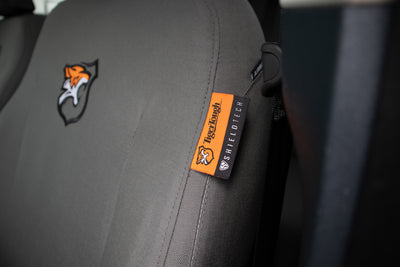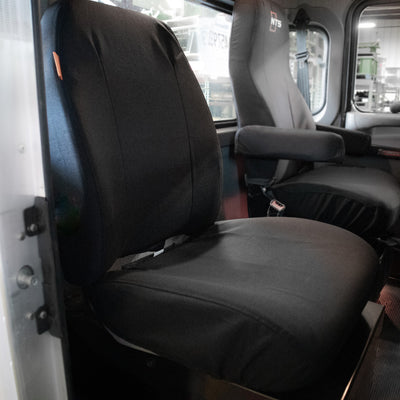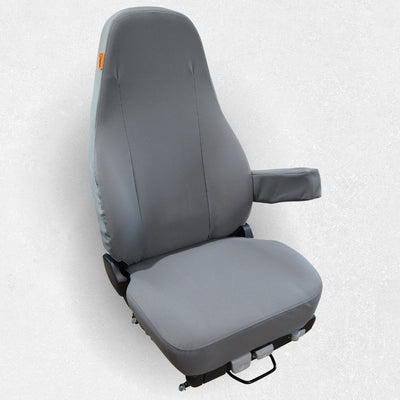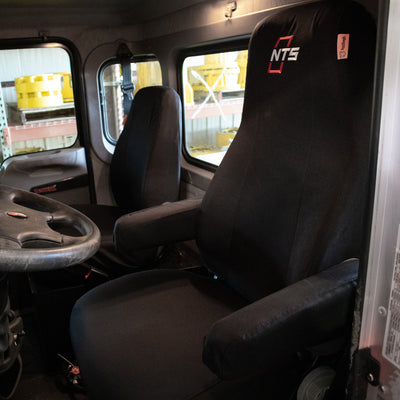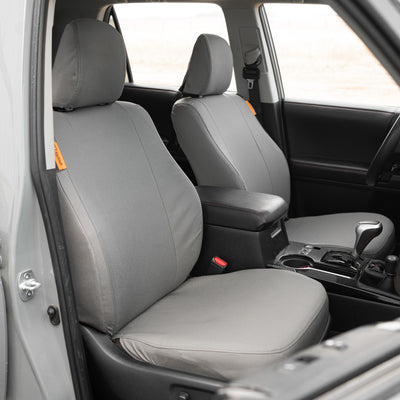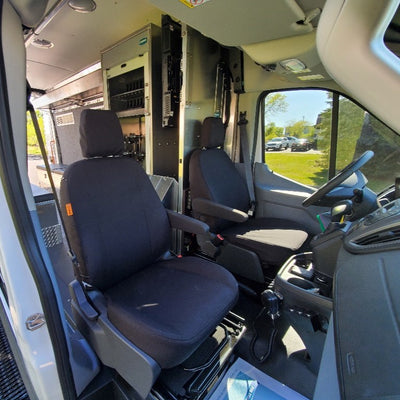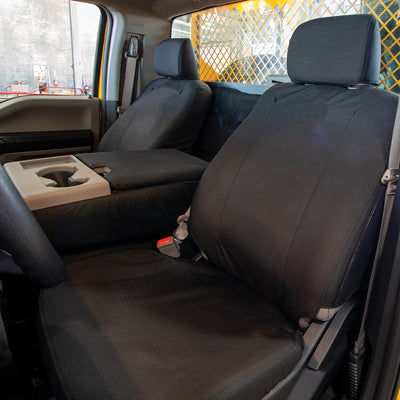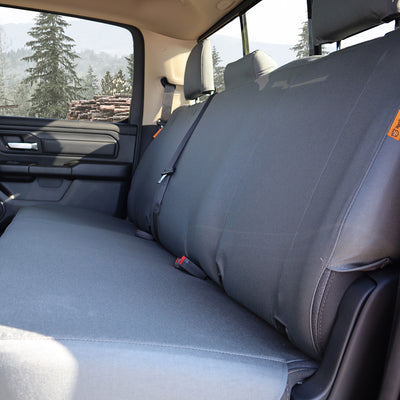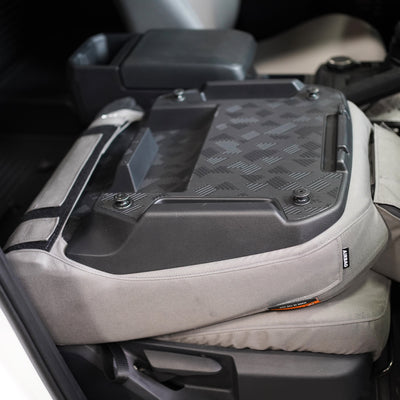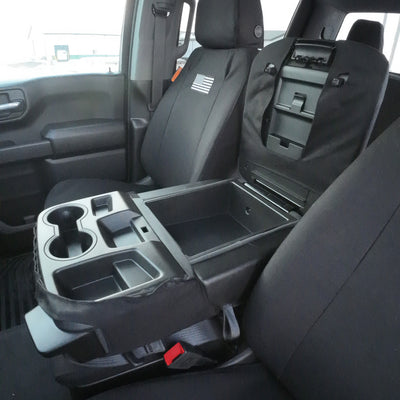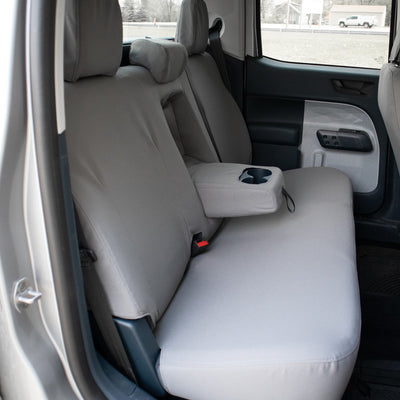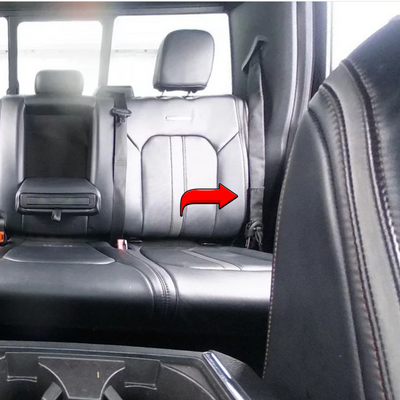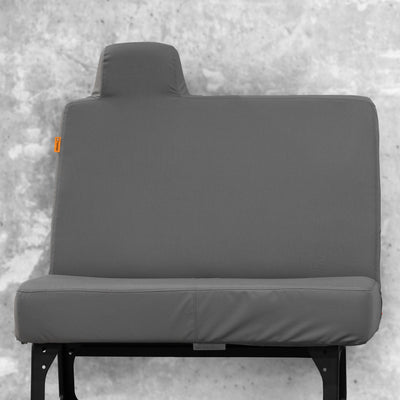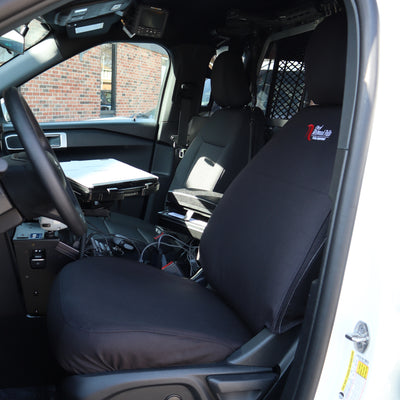8 Tips for Increasing Resale Value When Selling Your Heavy Equipment
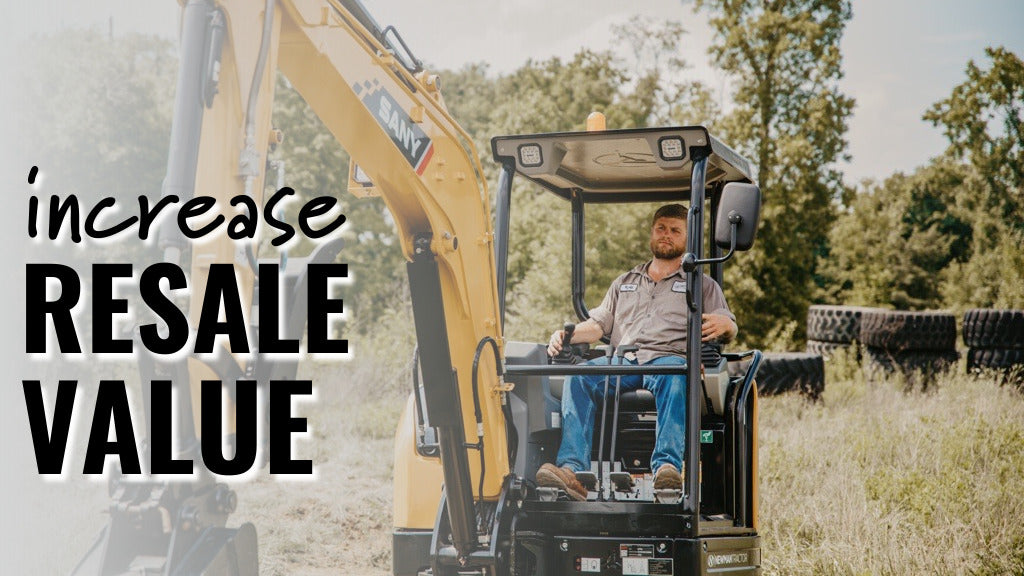
We all know the drill: you check the engine, kick the tires (best of luck if you’re doing this with tracks), and if the price sounds right, you seal the deal.
But when it comes to offloading your heavy equipment, there's much more to consider than just finding the person with the deepest pockets. Just like restoring an old car or tuning up a beloved guitar, boosting the resale value of your machine should be a badge of honor. It's a craft, a passion that transforms the task into an art form.
Let’s get into the details of increasing that resale value when it’s time to sell.
1. Regular maintenance is a no-brainer
Heavy equipment isn't just a chunk of metal; it's an investment and the backbone of your operations. Treating these machines like an afterthought? That's like ignoring the lifeline of your business.
Let’s dive in to grasp why routine care is the secret sauce to keeping these beasts running at their best.
Changing the oil
Heavy machinery, just like small cars, needs its oil–it’s the bloodline that keeps the engine purring and the gears shifting smoothly.
We're all about that resale value, right? A well-maintained engine, proven with consistent oil changes, boosts the confidence of potential buyers. They'll be more willing to fork over more dollars if they know you've treated your equipment like the precious gem it is.
So, next time you try kicking that oil change down the road, remember: this isn't just a chore left for Grandma and her trusty sedan. It's the heartbeat of your heavy equipment. Show it some love, keep it running like a champ, and watch as it rewards you in performance and value.
The power of a maintenance log
You know those folks who always seem prepared, the ones who have every tool they might need and know every bolt of their machinery by heart? That's what a maintenance log does for your heavy equipment. This isn't about just scribbling down notes; it's laying down the history of your machine's health and performance.
Clear, honest records build trust. When folks see that log, they'll know you're straight-shooting and that machine has been cared for. Without a log? They might just see an old piece of gear. But with it, they'll recognize a battle-hardened buddy that's stood by your side.
Logs also help spot problems before they sneak up on you, preventing those nasty surprises. And here's the kicker: a solid maintenance log doesn't just keep your machine running; it boosts its value big time. So, remember: machines might be mute, but their logs speak volumes. Keep them detailed and show the world your dedication.
2. Keeping that paint job shiny and new:
A worn-out, rusty exterior can quickly create an image of negligence or poor maintenance habits—even if that's far from the truth. Think of it as having food in your teeth on a first date; it's distracting and might overshadow all the good stuff you bring.
In the world of heavy machinery, first impressions are crucial. A gleaming exterior says a lot about your equipment. It conveys professionalism, attention to detail, and pride in one's work.
Consider a protective coating
But keeping that paint job pristine isn't just about aesthetics. It’s also about protection. Protective coatings act like a shield, warding off threats like rust, corrosion, and the usual wear and tear from the elements. These coatings extend the life of the paint, ensuring that the vibrant colors and sheen remain intact for longer periods.
A few reasons to consider one:
- Longevity: The longer your equipment looks new, the longer it can maintain a higher resale value.
- Protection: It's not just about looks. Protective coatings can prevent minor damages from escalating into significant repair issues.
- Cost-Effective: Investing in an excellent protective coating can save you from frequent repaint jobs, ultimately saving you money in the long run.
- Enhanced Image: Let's face it, a machine that looks well-taken care of tends to command more respect and trust, both in its efficiency and in the crew that operates it.
While the inner workings of your machinery are vital, it's clear that the exterior should be noticed. Think of it as a two-fold strategy: It’s not just keeping your equipment looking dapper; it’s about ensuring longevity, preserving value, and exuding professionalism at every step.
3. Upgrade old parts
In a world that's constantly evolving with technology and innovation, staying up-to-date isn't just about keeping up with the Joneses; it's about ensuring that your heavy machinery functions optimally and remains relevant in the market. Here's why updating those aging parts is not just a smart choice but a necessary one.
Replacing worn-out components
Upgrading old, worn-out parts is more than just giving your machinery a facelift. Think safety and efficiency: newer components, built with the latest tech, can ramp up performance, from fuel economy to reduced maintenance.
This isn't like holding onto a vintage baseball card; in the world of heavy machinery, top-notch performance, and reliability reign supreme. By swapping out the old with the new, you're extending the machine's working life and making it a hot ticket item for potential buyers. In a game where top-tier is the goal, you don’t want to be left behind because of outdated parts. Stay ahead, upgrade, and ensure your machine is always market-ready.
Document upgrades
Whenever you make upgrades, you’ll want to document that too. It offers potential buyers a clear roadmap of the machine's history and the enhancements made.
Since many upgraded parts come with warranties, documenting them ensures you can use these benefits if needed. Check to see if the warranty is transferable to any new owners.
Upgrading old parts is a strategic move that ensures safety, efficiency, and relevancy in an ever-evolving market. Paired with meticulous documentation, these upgrades can significantly elevate the machinery's value and appeal, making it a prime choice for potential buyers.
4. Record all repairs, part replacements, warranty info, and maintenance
We’ve said this a ton already, but that’s because it will be a huge selling factor for your heavy equipment. Trust is good, but the paperwork is proof. And our future buyer's peace of mind is worth can drive a sale.
In the world of heavy machinery, a well-documented record is almost as important as the machinery itself. Every repair, part replacement, and routine maintenance session talks about the machine's history and overall care. Think of it as a machine's health diary.
And if you had a warranty on the equipment, call and see if it's still valid and transferable. If it is, make that info available to potential buyers.
This way, anyone looking to buy knows exactly what they're getting into — no tricks, no gimmicks. That trusty logbook proves you've taken good care of your equipment, and in the end, that's gonna put more dollars in your pocket when it's time to sell.
5. Put seat covers on your equipment ASAP
Okay, you knew we were going to throw this one in here. You probably saw it coming a mile away, but that doesn’t mean it isn’t true.
You wouldn't head out into a rainstorm without a proper jacket, right? The same principle applies to the seats of your heavy machinery. They face a daily storm of dirt, sweat, wear, and the occasional coffee spill. Protecting them isn't just about aesthetics (okay, but there’s some of that)—it's about smart, long-term investment. Heck, even if you don’t pick our seat covers, there are other options out there.
Let's go over why seat covers are the jacket your equipment needs.
1. The daily grind
Every day on the job site brings its own set of challenges. Whether hopping on and off the machine with dirt-caked work boots, the rough materials of utility belts, or the accidental drop of a heavy tool—your seat is right there in the line of fire. Without a protective barrier, even the sturdiest seats can start showing signs of wear and tear in no time.
2. Upholding the resale value
We all know that first impressions count. When you decide to sell your equipment, potential buyers will judge it based on appearance. A brand new seat speaks volumes about how the entire machine was treated. It suggests careful handling and regular maintenance. In a nutshell, a pristine seat can significantly boost resale value.
3. Maintenance costs
While the initial investment in a high-quality seat cover might seem like an extra expense, it can save you heaps in the long run. Reupholstering or replacing a seat can cost around $1,000. Preventative measures, like a durable seat cover, can steer you clear of these costs.
4. Comfort and morale
Let's not forget about the opeartor! A seat cover can add an extra layer of comfort. Over time, this can greatly affect the operator's overall job satisfaction. We're talking fewer aches and pains and a happier team member. Plus, when you get into the cab of an excavator and the seat is still in good condition, that just makes the whole experience better.

5. Easy cleaning
Mud, grease, or that sandwich that decided to explode? No worries! A good seat cover makes clean-up easier. Instead of a lengthy scrubbing session, you could look at a simple wipe-down.
6. Representing brand image
Your equipment isn't just a tool—it represents your brand, commitment to quality and professionalism. Protecting its seats showcases a level of meticulous care and attention to detail. It's a subtle message to clients, partners, and competitors that you're serious about your work.
"Bought this Seat cover for my New JD 50 excavator which was my first new machine, and wanted to protect it. I must say the seat cover is the best I have seen and used in any equipment I have operated. Best aftermarket purchase I have made for my machine."
- Bow
Seat covers might seem small, but they pack a punch in terms of benefits and cost a fraction of what a new seat would. They're the unsung heroes, taking on the daily challenges of the construction world to ensure your equipment remains in prime condition, inside and out.
6. Expert inspections are worth their weight in gold
While you might know your equipment like the back of your hand, prospective buyers or partners don't. They're about to make a significant investment and want to ensure they make the right choice. This is where the invaluable role of expert inspections comes into play.
Why getting a professional to give your equipment the green light increases buyer confidence:
- Objective assessment: While you might offer the best descriptions and assurances, a third-party, especially an expert, brings an unbiased lens. Their evaluation is based purely on the equipment's condition and performance, free from emotional or investment bias.
- Spotting hidden issues: Even with regular maintenance, there might be underlying issues that aren't immediately apparent. Professionals identify these problems, ensuring the equipment is in top shape or pointing out areas needing attention.
- Boosted credibility: In the buyer's eyes, going the extra mile to get an expert evaluation showcases responsibility. It demonstrates that you're committed to transparency and ensures the equipment's quality.
The power of a stamp of approval:
- Reinforcing claims: You can sing praises about your equipment all day, but an expert's confirmation is concrete evidence to back up those claims.
- Increasing resale value: Expert-verified machinery often fetches a higher price in the market. The stamp of approval can sometimes make a tangible difference in the valuation.
- Peace of mind for both parties: While you're confident in your equipment's condition, an expert's nod gives you and the buyer peace of mind. It reaffirms your beliefs and soothes any reservations the buyer might have.
- Building trust: Being willing to bring in an expert to inspect the machinery shows prospective buyers that you have nothing to hide. It establishes a foundation of trust, which can be crucial in facilitating smoother transactions.
While there's an undeniable value in personal assurance and regular maintenance logs, an expert's stamp of approval can elevate your equipment's standing in the market. It's like having a trusted mechanic vouch for a used car—it just makes the whole deal sweeter for everyone involved.
7. Offer a training session with the sale:
You might draw the line here, but passing on heavy machinery is more than just tossing over some keys. Every machine's got its unique heartbeat, its quirks, and those "learned the hard way" lessons.
You've put in the hours, learned its strengths, and discovered those sneaky little nuances that aren’t in any manual. Giving the new owner a crash course isn't just a nice gesture; it's about safety, efficiency, and a bit of that blue-collar camaraderie. It’s ensuring they get the job done right and safely while also passing on the know-how to keep that machinery running smoothly for the long haul. After all, the best lessons aren’t found in a book but from one hardworking hand to another.
8. Keep it clean
Machines are dirty. That’s why we love them. They tackle challenging terrains, bear massive weight, and endure the harsh realities of a construction site. However, it's essential to separate the workhorse from the mud it's trotted through when it's showtime.
Here’s what a dirty machine can do:
- First Impressions Matter: Just as we judge a book by its cover, the exterior cleanliness of a machine is often the first point of evaluation for potential buyers. A mud-caked dozer might hint at neglect, even if it runs perfectly.
- Spotting Issues: Excessive dirt and grime can obscure actual problems or damages. Rust spots, leaks, or wear and tear might hide under layers of dirt. Presenting a clean machine ensures transparency and assures the buyer that there aren't underlying issues hiding.
- Reflects Maintenance Habits: While dirt is okay after a day's work, a clean post-operation machine suggests meticulous care and routine maintenance. It gives a glimpse into the machine's overall treatment during its lifespan.
And here’s what a little cleaning can offer:
- Boosts Aesthetic Appeal: Let's be honest; a sparkling machine just looks better. It's more inviting, appears newer, and exudes professionalism.
- Highlights Quality: When a machine is clean, it's easier to showcase its features, the quality of its parts, and any upgrades or modifications. Essentially, cleaning lets the machinery's quality shine through.
- Potential Buyers Appreciate the Effort: It might seem like a small gesture, but cleaning your equipment before a sale presentation sends a clear message: you value and respect the buyer's time and consideration. It shows that you're serious about the sale and have put in the effort to present the machine in its best light.
The construction site is a playground for these mechanical beasts, but when it’s time to sell, it's essential to scrub away the playground memories. Cleanliness, in this context, isn't just about aesthetics; it's a reflection of care, attention to detail, and professionalism. It solidifies trust, reaffirms value, and can significantly influence a potential buyer's decision.
It's about more than profit
When it comes to heavy equipment, resale value isn't just about counting pennies and dimes—it's a reflection of the blood, sweat, and respect you've poured into that machinery.
By taking care of your gear, you're not just boosting its worth, but also passing on a legacy of dedication and hard work to the next proud owner. And hey, while you're thinking about giving your machine that extra TLC, why not start with the seat it rides on? After all, taking pride in your machine means making sure the next person in line feels the same way.
Recent Posts
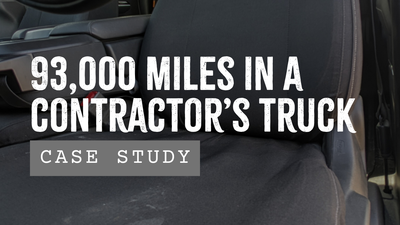
Case Study: 93,000 miles in a contractor's GMC Sierra

Marathon Seat Covers by Covercraft vs. TigerTough






